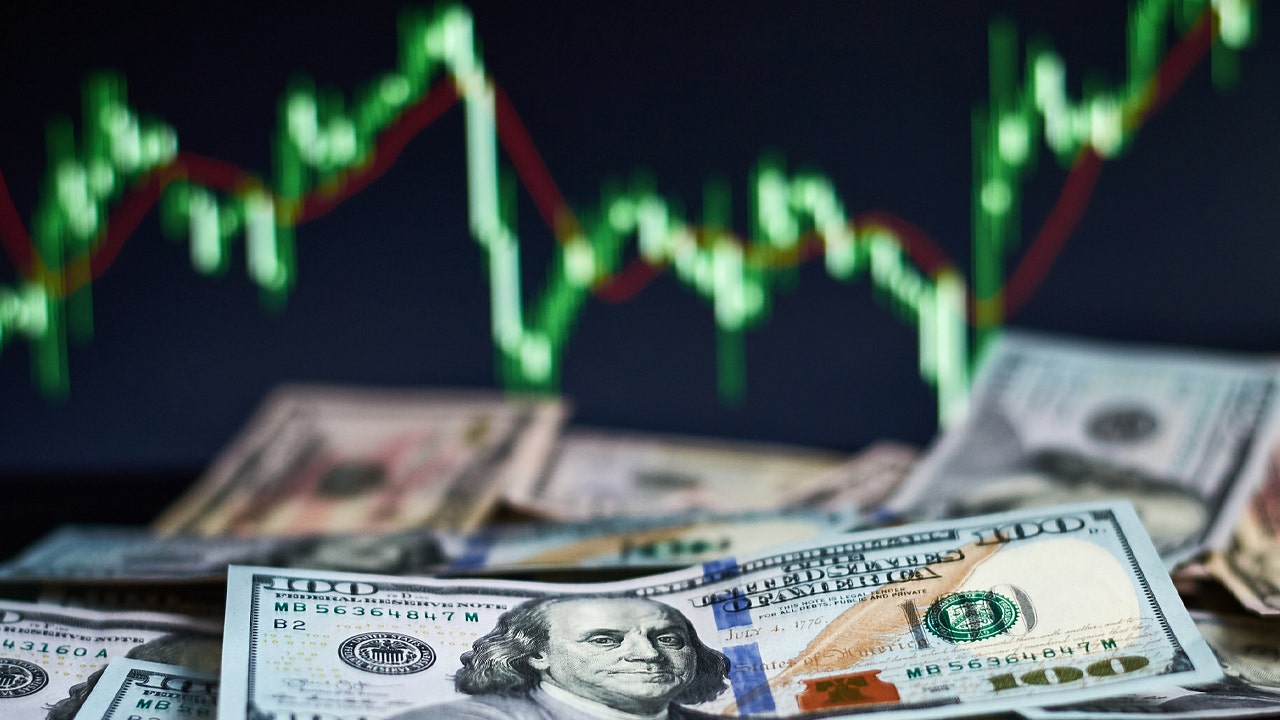 Macro Trends Advisors LLC founding partner Mitch Roschelle warned on Sunday that the U.S.economy is on “shaky footing,” despite what many economists and analysts perceived to be a positive April employment report .On Friday it was revealed that the U.S.economy saw solid job growth in April, suggesting the labor market is still strong despite headwinds from rising interest rates, soaring inflation, a worsening labor shortage and fears of a slowdown.Employers added 428,000 jobs in April, the Labor Department said in its monthly payroll report released Friday, beating the 391,000 jobs forecast by Refinitiv economists.It marked the 12th consecutive month that job gains topped 400,000.The unemployment rate, meanwhile, held steady at 3.6%, the lowest level since February 2020.”What often happens is you look at the headline numbers,” Roschelle told ” Fox News Live ” on Sunday.
Macro Trends Advisors LLC founding partner Mitch Roschelle warned on Sunday that the U.S.economy is on “shaky footing,” despite what many economists and analysts perceived to be a positive April employment report .On Friday it was revealed that the U.S.economy saw solid job growth in April, suggesting the labor market is still strong despite headwinds from rising interest rates, soaring inflation, a worsening labor shortage and fears of a slowdown.Employers added 428,000 jobs in April, the Labor Department said in its monthly payroll report released Friday, beating the 391,000 jobs forecast by Refinitiv economists.It marked the 12th consecutive month that job gains topped 400,000.The unemployment rate, meanwhile, held steady at 3.6%, the lowest level since February 2020.”What often happens is you look at the headline numbers,” Roschelle told ” Fox News Live ” on Sunday.
US ECONOMY SEES HEALTHY JOB GROWTH IN APRIL AS PAYROLLS JUMP BY 428,000 He went on to acknowledge that more than 400,000 jobs were added “and the unemployment rate is falling,” but noted that “one of the reasons the unemployment rate is falling is because we have our labor participation rate falling.””It actually fell for the first time in three months, which means less people are entering the workforce,” he noted.Macro Trends Advisors LLC founding partner Mitch Roschelle warns that the U.S.economy is on “shaky footing.” (iStock ) The labor force participation rate, a key measure of the active workforce, fell 0.2 percentage points in April to 62.2%, matching the lowest level recorded this year as the labor force shrank by 363,000 workers.Roschelle also pointed to data from the Job Openings and Labor Turnover Survey (JOLTS) released Tuesday, which revealed U.S.job openings reached a record 11.5 million in March .”So for some reason we have this twisted labor market where there are open jobs and we can’t find people for them and when you don’t have truly full employment, which we don’t, you don’t really have that strong of an economy, which means we may not be able to weather this inflation storm as well as we hoped to,” Roschelle argued.Roschelle also pointed to data from the Labor Department, which revealed on Friday that average hourly earnings rose by 5.5% year-over-year in March , down slightly from 5.6% the month before.The data comes amid surging inflation , which hit a fresh 40-year high in March .
Last month, the Labor Department said that the consumer price index (CPI) – which measures a bevy of goods including gasoline, health care, groceries and rents – rose 8.5% in March from a year ago, the fastest pace since December 1981, when inflation hit 8.9%.Prices jumped 1.2% in the one-month period from February, the largest month-to-month jump since 2005.The inflation data for April will be released on Wednesday.”I think the Fed was denying we had an inflation problem, calling it transitory for way too long,” Roschelle argued on Sunday.”In terms of printing money, which they printed trillions of dollars of money to get us through the COVID crisis, they were very late in acknowledging that we have to stop the money-printing process.” GET FOX BUSINESS ON THE GO BY CLICKING HERE He then pointed to what contributed to inflation from the fiscal policy side.
“I think we were continuing to stimulate the demand side of the economy,” Roschelle argued.”The most recent nearly $2 trillion COVID rescue bill wasn’t necessary.It just continued to pump money into the economy and very simply, too much money chasing too little stuff is what gives rise to inflation.””We still haven’t fixed the supply side of the economy and that’s the only way to fix it,” he continued, noting that “that’s really not the Fed’s job” so it’s going to take Congress to act to “try to find ways to fix and stimulate the supply side of the economy and stop stimulating demand.” CLICK HERE TO READ MORE ON FOX BUSINESS.